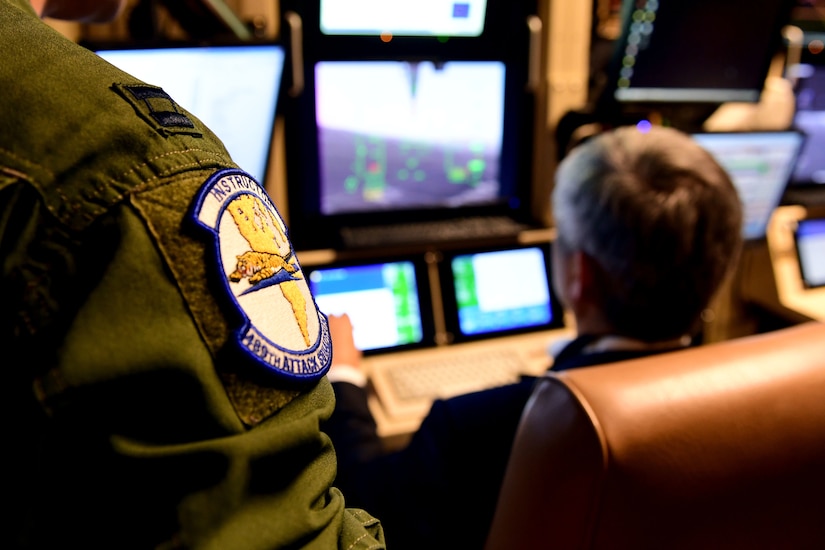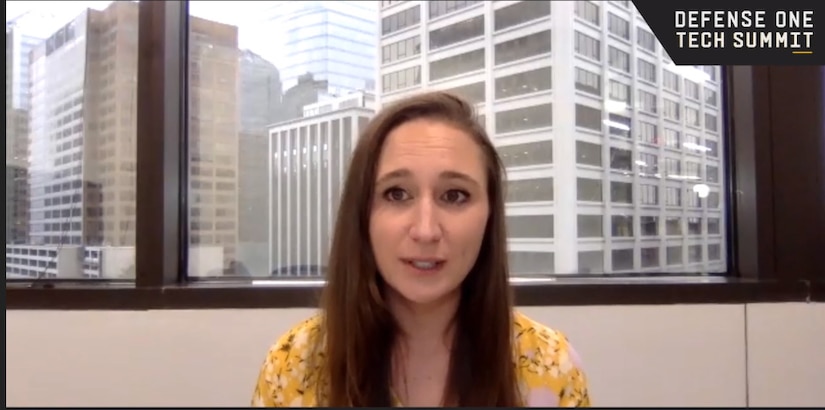Before COVID-19, the Defense Digital Service was already equipped to work remotely, the agency's lead recruiter said.
"When COVID came we were prepared, and we took our laptops, and we went home," Christian "CJ" Johnson said via livestream video at a Defense One Tech Summit panel.

The tricky part of COVID-19 for the agency was that several dozen candidates for employment were set to join DDS. Johnson said she reached out to the Office of Personnel Management and requested waivers to bring them on board remotely. That request was granted.
"These persons are all coming on remotely," she said. "They're jumping into their projects. We're providing them with their equipment, and we're moving along in the projects. This shows the [Defense] Department that they should consider looking at some of the tools we use outside of being confined to a building."
Though DDS doesn't pay what Silicon Valley can shell out, Johnson explained that it's not about the pay. It's about the mission.
"If you connect the talent to the mission, they're really going to want to come," she said. "This is unlike anything you've ever done. At DDS you are allowed to hack a satellite. There's so many things you can do to support national security. It really is so impactful, and it really resonates with the technologists."
Service with DDS is two years with an option to extend two more, which many choose to do before returning to the private sector. Johnson explained how DDS hires.
"You have to be able to go into spaces and places where the nerds are. You can't be afraid to use unconventional ways," she said. "You have to totally forget about using . You have to use recruiting sites that are heavily used by technologists. You have to attend tech conferences. You really have to engage and look at entrepreneurs who have had different startups, ... who've actually done different things and built different products to really bring them into our space."
Johnson said recruiting isn't a problem. "The problem is the [hiring] processes and policies that often become blockers to bringing in talent at a faster pace," she said. To make life more comfortable and relaxed for these technologists, Johnson said, DDS has open seating and dry-erase walls in the Pentagon that don't look like any other space in the building.
Chris Lynch, the CEO of Rebellion Defense and the former DDS director, said that when he was in the building, the DDS team hacked the Pentagon in just three months during an exercise — a lot less time than people expected.
"There's something powerful with speed," he said. "We didn't cut corners or safety."
His advice: "Challenge yourself to go fast. This is about disruption, it's not about innovation. Disruption takes something we know that needs to be changed and it puts in new approaches that are far more impactful."

Tara Murphy Dougherty, the CEO of Govini, said her company strives to hire people with DOD experience, including those who serve a tour in the building with DDS.
"The department is one of those places where it's really hard to understand how the Pentagon actually works," she offered. "The back-and-forth of exchange of talent is valuable for the department and the tech sector."
But don't look for work at DDS if you're not driven, she said. "We don't care what you're passionate about. We just want you to be passionate. The more we hire those people and point them at national security problems, the better off we're going to be."






No comments:
Post a Comment